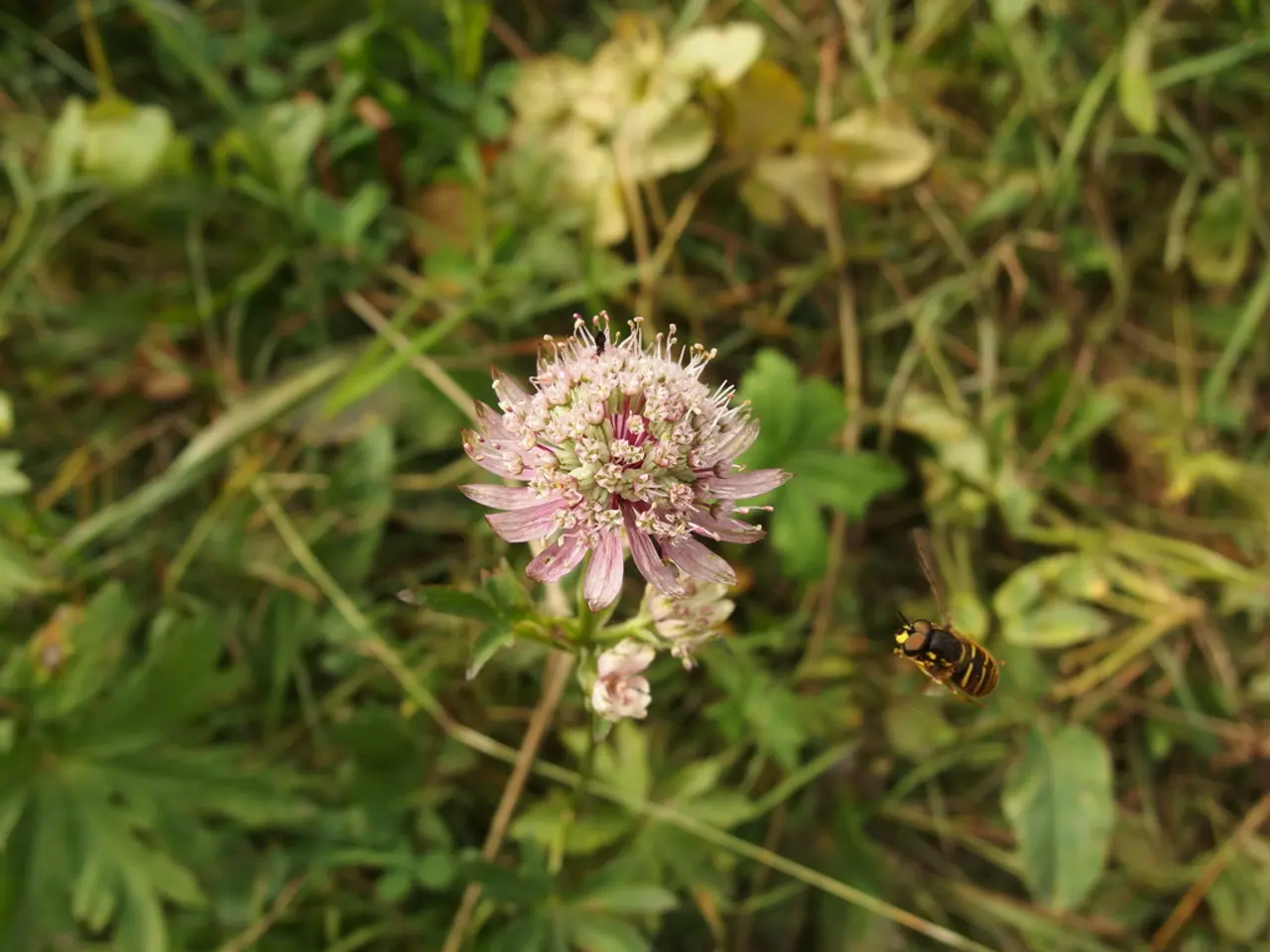Streamlined Pest Management for Eco-Friendly Vegetable Gardens
In the world of organic gardening, maintaining a chemical-free environment while protecting plants from pests can be a delicate balancing act. However, advancements in technology are making this task easier and more efficient than ever before.
Enter the era of smart, eco-friendly pest management systems. These innovative tools, powered by AI and data-driven platforms, are transforming the way organic gardens are cared for.
These systems, such as Farmonaut's Jeevn AI Advisory System and the UCANR Prototype Semi-Autonomous Device, integrate real-time monitoring, predictive analytics, and sustainable intervention methods like biocontrol and pheromone traps. They use satellite imagery, drones, IoT sensors, and machine learning to detect pests early, forecast outbreaks, and apply targeted, non-chemical controls that protect the ecosystem and support organic practices.
One of the key features of these top-tier systems is AI and Machine Learning. By analysing multispectral satellite data, drone images, and field sensors, they can identify and predict pest occurrences with high accuracy, allowing for early and precise treatment tailored to organic standards.
Remote, automated monitoring is another crucial aspect. IoT devices combined with cameras and environmental sensors (temperature, humidity) enable semi- or fully autonomous detection of pest populations, reducing the need for manual trap checks and timely responding to pest activity spikes.
Sustainable control methods are also a priority. Systems recommend and sometimes automate the deployment of eco-friendly interventions such as pheromone traps, biological controls (beneficial insects), and physical barriers, avoiding harmful chemicals and preserving pollinators like bees.
Integrated Resource Management is another feature that coordinates human and machine resources efficiently, minimising waste and environmental impact while maximising effective pest suppression aligned with organic protocols.
Environmental Impact Tracking is another important aspect, including carbon footprint monitoring to ensure pest management actions comply with sustainability goals, critical for organic certification and ecological preservation.
These automated garden care systems not only save time but also provide peace of mind by continuously monitoring gardens. Sensors placed throughout the garden provide real-time updates on pest activity, while smart pest control systems can activate traps or sprays organic solutions when pests are detected.
Traditional methods such as companion planting, natural predators, homemade sprays, and diatomaceous earth still play a key role in organic gardening. Companion planting involves planting certain flowers and herbs alongside vegetables to keep pests away, while diatomaceous earth is a natural substance that harms insects but is safe for gardens and acts as a pest deterrent.
Homemade sprays are created by mixing water with soap or garlic to deter pests and are safe for plants. Essential oils, such as garlic, have strong scents that repel pests in the garden. Beneficial insects, such as ladybugs and lacewings, eat harmful pests and contribute to a healthy garden.
In conclusion, the future of organic gardening is bright, with smart, eco-friendly pest management systems offering effective, low-impact, and automated solutions. These systems marry precision technology with natural, non-chemical pest control methods, making organic gardening more accessible and sustainable than ever before.
- Smart-home-devices are integrated into advanced, environmentally friendly pest management systems to help maintain chemical-free gardens and protect plants from pests.
- The use of AI and Machine Learning in these systems enables high-accuracy detection and prediction of pest occurrences, promoting early and precise treatment that aligns with organic standards.
- In addition to technology, traditional gardening practices such as companion planting, natural predators, homemade sprays, and diatomaceous earth continue to play a vital role in organic gardening.
- These automated garden care systems not only help maintain a healthy garden but also promote a lifestyle that blends technology, sustainability, and home-and-garden gadgets, making organic gardening more accessible and sustainable.




